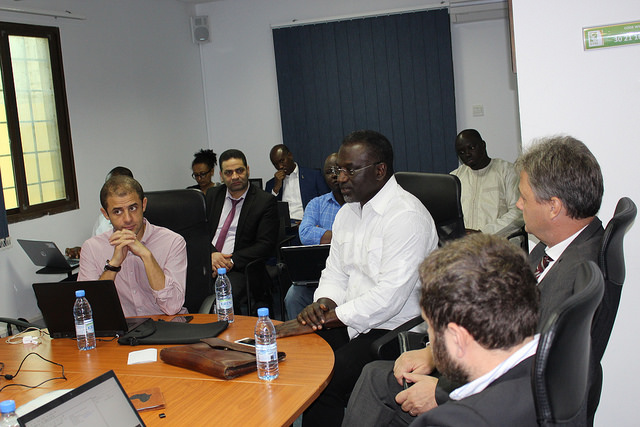|
On March 21, 2018, heads of state from 44 African countries met in Kigali, Rwanda to sign the framework agreement forming a new African Continental Free Trade Area (AfCFTA) among 49 of the 55 member states of the African Union. As of April 2, 2019, 22 member states have ratified the agreement which is scheduled to come into force on May 30, 2019. The AfCFTA is expected to establish one of the largest free trade areas in the world, covering over 1.2 billion people and $2.5 trillion in GDP. AGRODEP was established in 2010 by the International Food Policy Research Institute (IFPRI), in cooperation with the key sub-regional organizations in Africa, to create a critical mass of leaders among African experts in the study of strategic development issues and the broader agricultural growth and policy debate in Africa. AGRODEP has moved much closer to this goal over the last eight years and continues to build on the foundation built during the project’s first phase, with greater emphasis on scaling-up membership and deploying technical expertise to provide policy advise and strategic advisory services (PAAS) to state and nonstate organizations that are active in development work in Africa. AGRODEP launched the African Continental Free Trade Area (AfCFTA) Task Force in November 2018 to put the expertise of its more advanced members to use in addressing research questions and carrying out projects in collaboration with various stakeholders working on the AfCFTA. Composed of a group of ten individuals selected based on their background and experience in the area of trade policy analysis from among AGRODEP’s network of more than 230 African academics and researchers, the cadre of experts can be tapped to respond to requests for technical studies and analytical and advisory support from stakeholders, including the CAADP secretariat, RESAKSS, the African Union Commission, donor organizations, and representatives from other organizations that are engaged in studying the impacts of the AfCFTA. The initial members of AGRODEP’s AfCFTA Task Force are:
In early 2018, AGRODEP issued a call for papers for research related to the AfCFTA and trade integration on Africa. Those selected, as well as researchers from several international research organizations and universities, were invited to participate in the AfCFTA workshop in November 2018. The key objectives of the AfCFTA workshop were: (a) to present recent and ongoing research related to the CFTA and to regional integration in Africa, (b) to launch an AGRODEP expert group for policy analysis and advisory services (PAAS) in the area of trade and regional integration, and (c) to discuss research questions and priorities and innovative research methodologies to support evidence-based policy recommendations. As part of the AfCFTA workshop, an agenda-setting day was held with stakeholders from various institutions working on trade and development issues in Africa. Roundtable discussions were held on the views of the stakeholder about the role of the AfCFTA Task Force, about methodological issues, and on research prioritization. In ranking the AfCFTA-related topics in term of relevance, labor markets, market access in goods, foreign direct investment, market access in services, and baseline development ranked highest. Market access in services, trade facilitation, standards and SPS, rules of origin, zero trade issue, and FDI were also included in the classification. In addition to the workshop, AGRODEP hosted a four-part training course on Trade Analysis Methodologies. The refresher training course for the members of the AfCFTA Task Force included the following topics:
Based on outcomes from the workshop and training courses, the AGRODEP AfCFTA Task Force will continue to develop into 2019 by setting priority research areas, work programs, and continued fundraising initiatives.
|
|
